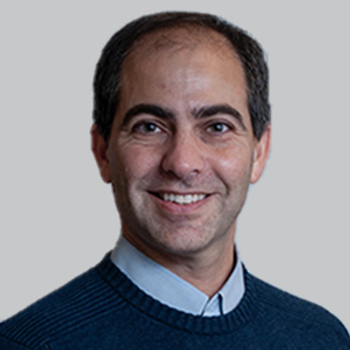
A recent analysis of the PREVENT and CHAMPION-NMOSD found no significant differences in safety outcomes for patients with AQP4+ NMOSD who were treated with rituximab prior to starting C5 complement inhibitors in specific timeframes.

A recent analysis of the PREVENT and CHAMPION-NMOSD found no significant differences in safety outcomes for patients with AQP4+ NMOSD who were treated with rituximab prior to starting C5 complement inhibitors in specific timeframes.

Following the switch from natalizumab, patients with multiple sclerosis on anti-CD20 therapies like rituximab demonstrated significant reductions in annualized relapse rate.
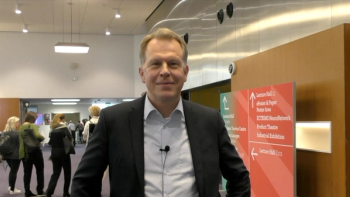
The senior physician and head of the Multiple Sclerosis Centre at University Hospital Basel spoke about his partnership with Octave and their work assessing and validating biomarkers for use in multiple sclerosis. [WATCH TIME: 4 minutes]

The associate professor of neurology at the Cleveland Clinic Lerner College of Medicine provided background on incorporation of real-world methods to optimize treatment selection for multiple sclerosis.
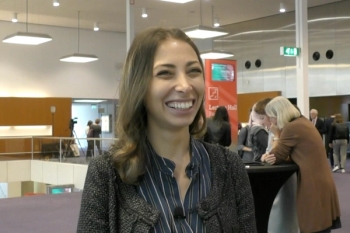
The postdoctoral researcher and health psychologist at King's College London spoke at ECTRIMS 2022 about the digital approach to treating fatigue in multiple sclerosis and the lack of available measurements. [WATCH TIME: 3 minutes]

The postdoctoral researcher and health psychologist at King's College, London spoke at ECTRIMS 2022 about the relationship between mood and fatigue in patients with MS. [WATCH TIME: 2 minutes]
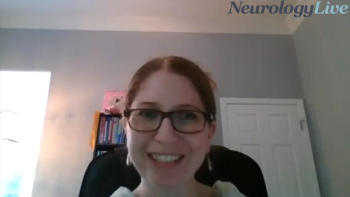
The associate professor of neurology at the Cleveland Clinic Lerner College of Medicine provided perspective on how the clinical community can improve trials for multiple sclerosis that help improve treatment decisions. [WATCH TIME: 4 minutes]

The postdoctoral researcher and health psychologist at King's College, London spoke at ECTRIMS 2022 about the most important aspect for improving fatigue in MS. [WATCH TIME: 4 minutes]
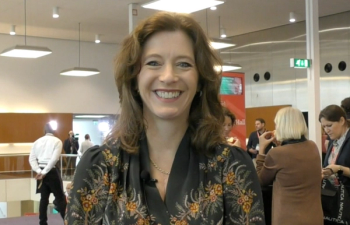
The chief of neurology and codirector of the neuroscience Center at the Children's Hospital of Philadelphia spoke at ECTRIMS 2022 about the difference in conversation for therapies between pediatric patients and adult patients with MS. [WATCH TIME: 5 minutes]

The chief of neurology and codirector of the neuroscience Center at the Children's Hospital of Philadelphia spoke at ECTRIMS 2022 about how her patients with pediatric MS have been inspirational to her in her practice. [WATCH TIME: 4 minutes]
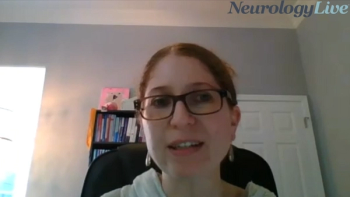
The associate professor of neurology at the Cleveland Clinic Lerner College of Medicine detailed the next steps in reforming and applying new 2-stage models that improve selection for MS disease-modifying therapies. [WATCH TIME: 6 minutes]

The chief of neurology and codirector of the neuroscience Center at the Children's Hospital of Philadelphia, spoke about the wellbeing of pediatric patients with MS in reference to her presentation at ECTRIMS 2022. [WATCH TIME: 4 minutes]
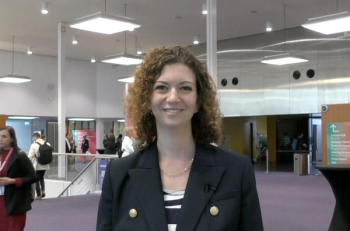
The assistant professor of medicine at University of Toronto, and neurologist at St. Michael's Hospital spoke about the process of changing or beginning treatment with a variety of disease-modifying therapies in multiple sclerosis. [WATCH TIME: 4 minutes]
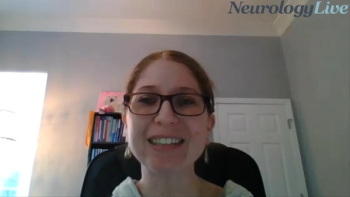
The associate professor of neurology at the Cleveland Clinic Lerner College of Medicine offered insight on her presentation at ECTRIMS 2022 looking at 2-stage models to better understand heterogeneous treatment effects of MS DMTs. [WATCH TIME: 6 minutes]

The chief of neurology and codirector of the neuroscience Center at the Children's Hospital of Philadelphia spoke about her presentation at ECTRIMS 2022 on the treatment of pediatric MS. [WATCH TIME: 5 minutes]

The clinical research director of the UCSF Multiple Sclerosis Center provided perspective on several analyses from the N-MOmentum trial that highlight the clinical use of biomarkers in NMO and NMOSD.
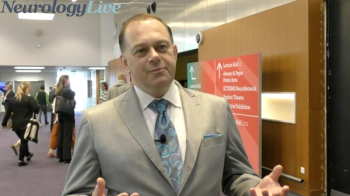
The clinical research director of the UCSF Multiple Sclerosis Center provided perspective on the importance of serum neurofilament light and how it can be used in the management of patients with NMOSD. [WATCH TIME: 3 minutes]

Federica Picariello, PhD, postdoctoral researcher, psychologist, King's College, London, spoke about fatigue mechanisms in patients with MS based on presentations from the 2022 ECTRIMS Congress.
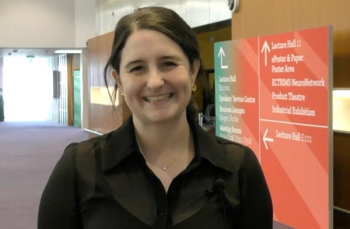
The staff neurologist at the Mellen Center for MS Treatment and Research at Cleveland Clinic spoke about her presentation from ECTRIMS 2022 on teleneurology and its utilization as a tool to make care more accessible to patients with MS. [WATCH TIME: 7 minutes]

The staff neurologist at the Mellen Center for MS Treatment and Research at Cleveland Clinic, spoke about her presentation on teleneurology being a beneficial healthcare tool for patients with MS at ECTRIMS 2022. [WATCH TIME: 7 minutes]

Mind Moments®, a podcast from NeurologyLive®, brings you exclusive interviews with Darin Okuda, MD; Federica Picariello, PhD; Brenda Banwell, MD; Riley Bove, MD; Tomas Kalincik, MD, PhD; and Marisa McGinley, DO. [LISTEN TIME: 34 minutes]
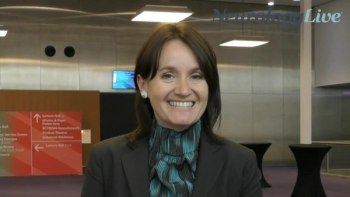
The associate professor of neurology at the University of California, San Francisco, discussed the key points from an oral presentation at ECTRIMS 2022 on understanding postpartum for patients with MS and NMOSD. [WATCH TIME: 4 minutes]
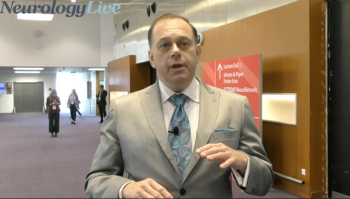
The clinical research director of the UCSF Multiple Sclerosis Center discussed the need for measures of progression in neuromyelitis optica and the next steps in treatment. [WATCH TIME: 4 minutes]
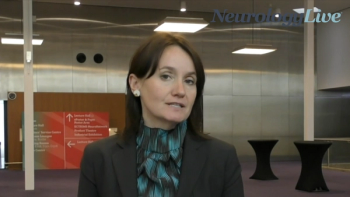
The associate professor of neurology at the University of California, San Francisco, discussed takeaways from an oral presentation at ECTRIMS 2022 on the use of anti-CD20 therapies in postpartum for patients with MS and NMOSD. [WATCH TIME: 5 minutes]
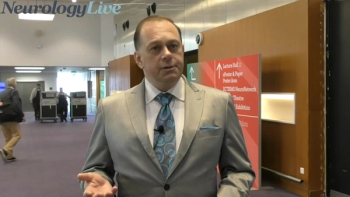
The clinical research director of the UCSF Multiple Sclerosis Center provided insight on an abstract from ECTRIMS 2022 regarding inebilizumab’s mechanism of action to prevent NMOSD attacks. [WATCH TIME: 3 minutes]
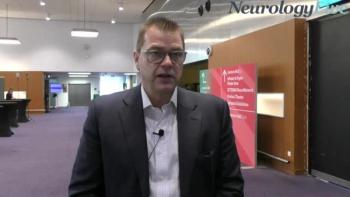
The director of the Buffalo Neuroimaging Analysis Center provided context on a new study exploring ocrezliumab’s (Ocrevus; Genentech) effect on leptomeningeal inflammation and humoral response to EBV. [WATCH TIME: 5 minutes]

Laurits Taul Madsen, a PhD candidate at Aarhus University, discussed the use of lower extremity function assessments to characterize patients with MS at risk for future falls.
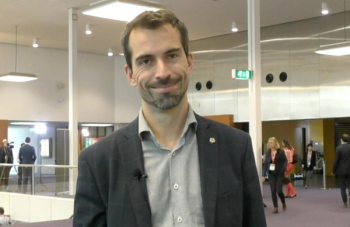
The professor of neurology and biostatistician at University of Melbourne and Royal Melbourne Hospital spoke on stem cell transplantation in patients with MS and its effectiveness in comparison with other traditional approaches. [WATCH TIME: 2 minutes]
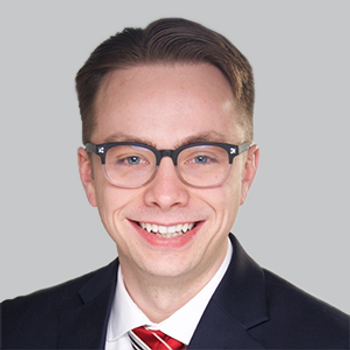
In the meta-analysis, the Paleolithic and Mediterranean diets continued to outperform other dietary interventions such as ketogenic, anti-inflammatory, fasting, and calorie restriction on fatigue and quality-of-life outcomes.
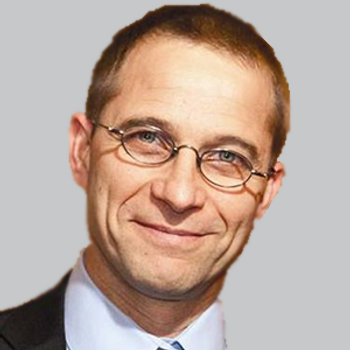
Findings from a randomized phase 2 trial resulted in patients with relapsing multiple sclerosis treated with evobrutinib displaying an increase in S1/S2 IgG antibody levels.